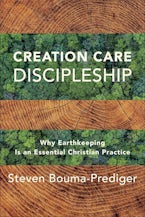- Home
- religion
- social science
- cooking
- The Spirit of Soul Food

The Spirit of Soul Food
Race, Faith, and Food Justice
208 Pages
- Paperback
- ISBN: 9780252086175
- Published By: University of Illinois Press
- Published: December 2021
$24.95
Christopher Carter’s The Spirit of Soul Food: Race, Faith and Food Justice is a daring book. If you’ve ever tried to suggest that someone change how they eat, or if you’ve received dietary advice yourself, then you know it usually doesn’t go well. Even in the best situations, among individuals who care for one another, it takes a long time. Carter’s book attempts something even more challenging: He invites an entire group of people to change how they think about what they eat. Standing within the theological traditions of Black churches, Carter asks Black Christians to reconsider their cultural understanding of soul food as necessarily including meat and to instead adopt the spiritual practice of Black veganism.
The argument for Black veganism begins with the public health impacts of the industrial food system on African American communities. Carter cites key statistics: African Americans are 51 percent more likely to be identified as obese; half of African American children born in the year 2000 will develop Type II diabetes; African Americans are twice as likely to die from heart disease or stroke than white Americans (5). The foundational claim of the book is that these health impacts are directly related to the consumption of industrial meat, particularly poultry, but also beef and pork. Practicing Black veganism as a soul food tradition is a religious way to resist a racist system that harms people and nonhuman animals.
In four chapters, the book outlines the historical grounding and theological framework for Black veganism as the continuation of soul food traditions, tracing the “dietary evolution of people of African descent” within what became the United States (18). West African dietary traditions practiced on slave plantations in the US South impacted the broader development of American foodways. Carter writes that “soul food, like jazz, is a Black, American, and Southern invention” (x). The term soul food, Carter notes, emerged in the 1960s as part of the civil rights movement and sought to identify, celebrate, and recover Black foodways. For Carter, soul food connects African Americans to the past, to tradition and ancestors.
After offering a history and definition of soul food, Carter asks his central question: “How might soul food be used to tell stories about whom we want to become and not only of who we once were?” (xiii). This question is implicitly theological, inspired by Howard Thurman’s description of the “religion of Jesus” as a “spiritual path of radical compassion” (13). If soul food is intended to spiritually heal communities, and yet its ingredients cause physical harm, then how can the tradition be theologically reimagined, through habit and practice, through recipes and sourcing, to foster a more humane world for people and nonhuman animals? Even though this question is generated through a theological perspective, it is ultimately an ethical concern that should resonate with religious studies and food studies scholars, regardless of whether they work within confessional communities or more secular traditions.
While the book is very much an academic epistle of pastoral care from a Black theologian to Black Protestant Christians, its description of soul food as antiracist offers scholars of American religions, specifically those interested in religion in the US South, a historical method to consider the impact of West African foodways within and beyond Black churches.
Consider, for example, how Carter illustrates soul food through personal examples of eating “red beans and rice, fried chicken, baked macaroni and cheese, collard greens, and corn bread” with his family (1). Like Carter, I grew up eating all those foods, just in a different racial community. As a white Protestant raised in Baptist churches in the US South, all the same foods were on my grandmother’s table and lined up for dinner on the ground on Sundays after service. Now a parent, I cook collards and corn bread for our kids. In a historical sense, the religious community that raised me shared a connection with a strand of American foodways influenced by West African dietary traditions. That my family traditions were racially segregated from Carter’s says something about the wide-ranging impact of Black foodways in the United States, even as southern whites denied or ignored that influence. To this point, white Protestant communities would be more likely to describe my grandmother’s cooking as “southern cuisine” or “comfort food,” terms that emerged in the late 1970s to obscure historical encounters with African Americans and deny the influence of West African traditions on southern white foodways.
By casting the history of soul food in an antiracist light, Carter explains how West African foodways were maintained within Black churches while also considering how they influenced American cultural practices more broadly. This model should encourage scholars to reconsider how Christian traditions in the US that supported racial segregation and denied the influence of Black foodways on their culinary practices might also promote the spirit of veganism as an antiracist practice. The Spirit of Soul Food is a must read for anyone interested in challenging the industrial food system in practical terms.
Chad Seales is an associate professor of religion at the University of Texas at Austin.
Chad SealesDate Of Review:February 17, 2023
Christopher Carter is an assistant professor of theology and religious studies at the University of San Diego. He is also a pastor within the United Methodist Church and has served churches in Battle Creek, Michigan, and in Torrance and Compton, California.











